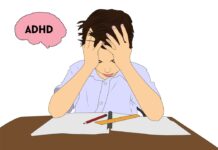Breaking Blind: Antipsychotic Drug Efficacy May Be Overestimated
Only 4 of 188 antipsychotic trials assessed blinding, and in all 4 cases, the blind was broken, potentially leading to an overestimation of the drug effect.
Prescribers Often Fail to Support Patients Discontinuing Antidepressants, Study Finds
Study reveals most patients are dissatisfied with prescribers' support when discontinuing antidepressants.
Alarming Overprescription Patterns for Older Adults on Antidepressants
New study finds polypharmacy for 73% of older adults on antidepressants, with 56% at risk of harmful drug interactions.
Global Survey Leads to New Recommendations for Deprescribing Psychiatric Drugs
Growing rates of long-term psychiatric drug prescriptions and documented issues with withdrawal demonstrate a need for safe deprescribing practices.
New Guidance on Antidepressant Withdrawal for Doctors in the UK
New guidance for primary care doctors in the UK on antidepressant discontinuation acknowledges severe and long-lasting withdrawal symptoms.
Understanding the Neurobiology of Post-SSRI Sexual Dysfunction
Post-SSRI sexual dysfunction (PSSD) may be a common adverse effect of antidepressants. Researchers are now attempting to understand the neurobiology behind it.
Researchers Seek Standardized and Safe Antidepressant Tapering Protocol
A new study promotes the use of a standardized approach to antidepressant tapering.
Therapy Beats Drugs for Depression for Long-Term Outcomes
Combining drugs and therapy also did not lead to better depression outcomes than therapy alone.
The Faulty Reasoning That Turned ADHD Into a Disease
Leading ADHD researchers outline four mistakes that turned ADHD from a description of behavior into a medical disease.
Antidepressants Plus Immune Response Terminate Pregnancies in Mice
Also, male mice born to mothers with an immune response exhibited “autistic-like” behaviors, scientists report.
Researchers Identify Factors to Predict Risk of Antidepressant Withdrawal
Paroxetine, SNRIs, and MAOIs were associated with the highest risk of withdrawal, as was long duration of use and whether the person experienced withdrawal in the past.
Animals Exposed to Antidepressants in Utero Are Worse at Taking Care of Their Own...
A new study in rats found that those exposed to antidepressants in utero had an impaired ability to nurture their own children in later life.
Adults Treated for ADHD Report Low Quality of Life
Adults receiving ADHD medications and therapy frequently experience adverse events that interfere with employment and daily life.
Gradual Tapering Recommended for Antidepressant Discontinuation
A new literature review reinforces the need to “down-titrate” or taper antidepressants, especially drugs like Celexa and Paxil.
Lithium Use Leads to Chronic Kidney Disease
New evidence suggests that lithium, commonly prescribed for bipolar disorder, can increase the risk of chronic kidney disease.
Antidepressant Withdrawal Linked to Suicide Attempt in Case Study
Researchers suggest that antidepressant withdrawal can be a possible precipitant of suicide.
ADHD Diagnosis Leads to Worse Quality of Life, Increased Self-Harm in Kids
When comparing kids with the same symptoms who were either diagnosed with ADHD or not, those who received the diagnosis had worse outcomes.
Long Term Antidepressant Use Associated With Increased Morbidity and Mortality
A study finds that commonly prescribed antidepressants are associated with the development of diabetes, hypertension, and other diseases.
Health Risks to Babies When Antidepressants Used During Pregnancy
Babies born to mothers taking antidepressants during pregnancy were more than six times as likely to have neonatal withdrawal syndrome—including breathing problems, irritability/agitation, tremors, feeding problems, and seizures—than those born to mothers taking other types of drugs.
Antidepressants No Better Than Placebo for About 85% of People
Researchers can’t predict the 15% who benefit from antidepressants, and the other 85% are unnecessarily exposed to the harms of the drugs.
Less Than a Quarter of Those with Depression Respond to Treatment in Real Life
In a real-world setting, less than a quarter of patients diagnosed with depression improved with medication, hospitalization, and therapy.
Psychiatric Drugs Do Not Improve Disease or Reduce Mortality
Nassir Ghaemi: “Most psychiatric medications are purely symptomatic, with no known or proven effect on the underlying disease. They are like 50 variations of aspirin, used for fever or headache, rather than drugs that treat the causes of fever or headache.”
Antidepressant-Induced Serotonin Syndrome a Danger for the Elderly
Researchers found that 25% of elderly patients taking antidepressants had serotonin syndrome, which is potentially life-threatening.
Industry Corruption in Systematic Review for Injectable Antipsychotics
Researchers highlight how systematic reviews are compromised by pharmaceutical industry ties by exposing a study of injectable antipsychotics.
Stimulants Don’t Improve Academic Performance in Kids with ADHD
“Efforts to improve learning in children with ADHD should focus on obtaining effective academic instruction rather than stimulant medication.”

































